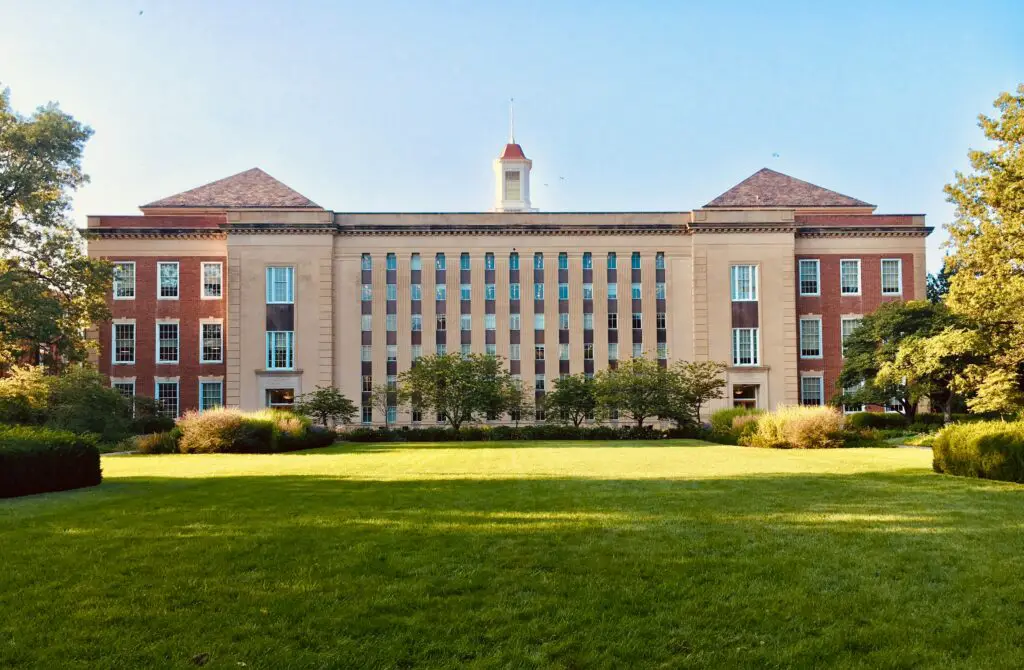Introduction Paragraph – When it comes to higher education in the United States, Ivy League universities are often considered top-tier institutions. However, there is some confusion about whether the University of Oxford in the UK is an Ivy League school. In this article, we will explore this question and provide a clear answer.

Is Oxford an Ivy League school?
No, the University of Oxford is not an Ivy League school. The Ivy League is a group of eight prestigious universities located in the Northeastern region of the United States.
What Is The Ivy League?
The Ivy League is a collegiate athletic conference comprising eight private institutions of higher education located in the Northeastern region of the United States, including Harvard, Yale, Princeton, Columbia, Brown, Dartmouth, Cornell and the University of Pennsylvania. The term “Ivy League” also refers to the academic excellence, social elitism, and selective admissions criteria of these institutions.
What are the criteria for being an Ivy League school?
Eight institutions are part of the Ivy League, and they all have a few things in common. First and foremost, they are all private universities with a long history of academic excellence. Additionally, they all have a strong reputation in athletics, particularly in sports like football and basketball. Finally, they are all extremely selective in their admissions criteria, with acceptance rates typically below 10%.
Why is Oxford often confused with an Ivy League school?
The University of Oxford is one of the oldest and most prestigious universities in the world, with a history dating back to the 12th century. It has a strong reputation for academic excellence, and many of its graduates go on to become leaders in their fields. This has led some people to believe that Oxford is part of the Ivy League, even though it is located in the United Kingdom and not part of the conference.
The difference between Oxford and the Ivy League:
While the University of Oxford and the Ivy League universities share a commitment to academic excellence, there are some key differences between them. Perhaps the most significant difference is that the Ivy League universities are all located in the United States, while Oxford is located in the UK. This has implications for issues such as campus culture, student life, and access to resources and opportunities. For example, students at Oxford have access to a wider range of international opportunities and experiences than those at Ivy League universities, but they may also face additional challenges related to culture shock and adjust to a new environment.
Another important difference between Oxford and Ivy League universities is that the Ivy League universities are all private institutions, while Oxford is a public university. This means that Oxford has a different funding model and may have different priorities and policies than the Ivy League universities. Additionally, the Ivy League universities are all members of a single athletic conference, while Oxford does not have an athletic conference. This means that sports are not as central to the culture and identity of Oxford as they are to the Ivy League universities.
Overall, while there are some important differences between Oxford and Ivy League universities, they are all highly respected and renowned institutions that offer exceptional educational opportunities to their students. Students who are considering attending Oxford or one of the Ivy League universities should carefully consider their priorities, goals, and preferences to make an informed decision about which institution is the best fit for them.
The benefits of attending Oxford:
While Oxford may not be an Ivy League school, it is still an excellent choice for students who are looking for a world-class education. Some of the benefits of attending Oxford include:
• A long history of academic excellence: Oxford is one of the oldest and most respected universities in the world, with a reputation for academic excellence that dates back centuries. • A global network of alumni: Graduates of Oxford are part of a global network of alumni who have gone on to become leaders in their fields.
• Access to world-class resources: Oxford has some of the best libraries, research facilities, and faculty in the world, providing students with access to cutting-edge research and resources.
Conclusion:
In conclusion, Oxford’s reputation as a top-tier institution is well-deserved, with a long history of academic excellence, a global network of alumni, and access to world-class resources. Although it is not a member of the Ivy League, it is still an excellent choice for students who seek a world-class education. Students who choose Oxford can benefit from a diverse range of academic programs,
exceptional faculty, and vibrant campus culture. Therefore, it is a worthwhile option for those who are looking for a rigorous and rewarding academic experience.
Frequently asked questions:
- Is Oxford as prestigious as the Ivy League schools?
Answer: Yes, the University of Oxford is widely recognized as one of the most prestigious universities in the world, with a long history of academic excellence and a strong reputation for research and scholarship. It is often ranked alongside Ivy League schools in various university rankings and is highly regarded by employers and academic institutions around the world. While there are some differences between Oxford and Ivy League universities, in terms of prestige and academic reputation, they are often considered to be on a similar level.
- Can Oxford students participate in sports?
Answer: Yes, despite not being a member of an athletic conference like the Ivy League universities, the University of Oxford still offers a range of sports teams and clubs that students can participate in. From rugby and rowing to cricket and football, there are plenty of opportunities for students to stay active and engaged in competitive sports. Oxford also has a strong tradition of intercollegiate sports, with various competitions and tournaments taking place throughout the academic year.